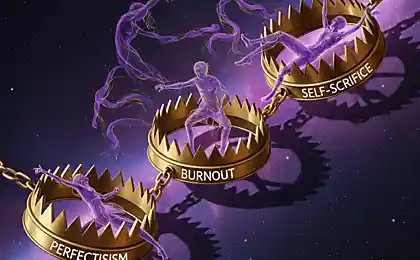225
How to find a job when everything is mad: instructions for those who have lost interest

When nothing burns: how to turn apathy into a compass
According to the World Labor Organization (2023), 43% of workers experience existential fatigue from professional choice. Your apathy is not a verdict, but a signal to reset. How to use indifference as a search tool instead of a barrier.
Tactics: Destructuring stereotypes
Step 1. Anti-interest map
Make a list of 20 disgusting activities. A study by Harvard Business Review (2022) shows that negative choices narrow the search field by 68% more effectively than traditional “wants”.
Example: “I hate routine → I’m looking for projects with an agile approach”
People are annoyed by remote analytics.

Step 2. Analysis of "Hidden Benefits"
Psychologist Barbara Engel, in The Paradox of Indifference (2021), proved that apathy often hides the fear of success. Ask yourself, “What will I lose if I find the perfect job?” The answers will surprise.
Tactics: Revolution through Microaction
5 cm resistance method
Take minimal steps outside your comfort zone every day:
Write a post about professional failure on LinkedIn
Take a free course in a ridiculous specialty (for example, “Earthworm Sommelier”)
According to an MIT study, these actions rewire neural pathways in 21 days.
Case: The story of Maxim Former lawyer turned curator of digital art:
I started with silly sketches on TikTok about jurisprudence. After 3 months, I was invited to host a contemporary art gallery podcast. I now combine both skills.”
Professional Tinder technique
Create a table of 100 random occupations (from "penguin flipper" to "bioethical hacker"). Note:
- "What the hell is this?"
- "Exactly not."
The algorithm will show your true preferences through patterns of curiosity.

Tactics: The Economics of Disappointment
The Principle of Controlled Failure
Plan 3 failed interviews per month. The goal is not to get a job but to:
Gather information about the market
- Train stress resistance
Discover hidden competencies
A LinkedIn study found that 79% of successful career transitions began with intentional failures.
Financial Lifehack: Get an intermediate job with a flexible schedule (night administrator, premium delivery courier). This will provide a resource for experimentation.
Emotional Tool: Create a “Diary of Professional Disgusts” – analyze what exactly causes boredom. Often the problem is not in work, but in conditions.
Glossary
Professional identity
A set of ideas about their role in the work (Holland, 1997)
Emotional burnout
Exhaustion syndrome caused by chronic stress at work (Maslac, 2001)
Impostor syndrome
Feeling incompetent despite external success (Klans, 1978)
“The choice of work is not the search for passion, but the creation of conditions for its emergence” – a new paradigm of career coaching.
5 Reasons Why Your Mind Becomes a Saboteur
Diplomacy Instead of Ultimatums: 8 Strategies for Conflict with Friends























